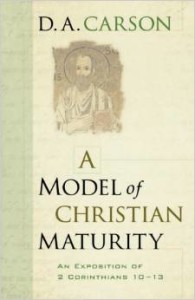
At the beginning of Jesus’ ministry on earth, when Christ asked Peter and Andrew to follow Him, he told them that as they did so, He would make them “fishers of men” (Matthew 4:19). Later on, near the end of Jesus’ time on earth, Jesus told his disciples that “just as the Father has sent me, so I am sending you” (John 20:21) He would also pray to His Father that “as you sent me into the world, so I have sent them into the world” (John 17:18).
I think we understand what Jesus was telling His disciples about what it means to follow Him. We know that we are a sent people into the world who are to be “fishers of men.” We can quote the “Great Commission.” We get this stuff! Knowledge is not our problem (or at least it’s not mine). Ed Stetzer, commenting about the Transformational Discipleship study he helped to conduct, writes:
We asked 3,000 protestant churchgoers how many times they had personally shared with another person how to become a Christian. Sixty-one percent said that they had never shared their faith. Zero times. Forty-eight percent said they hadn’t invited anyone to church during that period of time.
Again, it’s not a knowledge problem, it’s a problem of praxis. Somehow we need to move what we know to do and become to the area of daily living. The key is that we just have to start doing it. We have to develop the practice of sharing the gospel with others (more could be written about this in regards to developing habits and virtue). So where do we start? I believe it needs to begin in your ordinary everyday life. Therefore, consider these four things…
Prayer
I hope you realize the importance of prayer. Consider the following quotes by N.T. Wright in his book Simply Good News:
Prayer is standing between the one true God and his world, becoming a place where the love of this God and the life of this world (and especially the pain of this world) are somehow held together.
Prayer is part of the larger vocation in which we humans are supposed to be bringing God’s love to bear on his world.
Do we see prayer as a part of our “vocation?” Do we really understand that prayer is where we battle for the souls of those around us to connect them to the love of God?
So who are you praying for? Are you praying for those around you? Do you have a list? Do you write down names daily of people you encounter? If not, start today. Buy a small notebook or start plugging in names into your phone. Regardless of how you do it, begin praying specifically for those around you. And pray that God will awaken them to His love and grace!
Presence
Wherever you are, be all there. Practice the presence of people. Turn off technology and realize who is around you. Don’t be in such a rush everywhere you go. The reality is that you probably come into contact with many people each day that you might not even be aware of. As I’ve written before, we see people as either scenery, machinery, or ministry. So how do you see those around you?
Being present is being incarnational. In our hurried up world, can you imagine how refreshing we could be to others if we slowed down to be present among them? Can you imagine how life-giving we could be if we slowed down enough to listen to people? I believe people are starving to be heard.
Proclamation
You have to speak! Now I’m not talking about preaching at others. What I mean is that you have to converse about the gospel. But if you are praying for others and if you are present among them with a listening ear, you might find more open doors to begin talking about God than you thought imaginable. But you do have to be willing to speak.
The key is to be who you are. Talking with others about Christ is not about having a certain type of personality. Don’t turn into your pastor when you start sharing the gospel. I’m sure there is nothing wrong with your pastor, but you are not him. Be yourself. Be honest. Be caring.
Perseverance
Keep going. Be faithful. Don’t stop praying for those around you. Don’t stop caring for someone. Don’t give up. It might be years before you see something happen in a particular person’s life, but keep trusting that God is working. Stay committed. I think this is especially hard for us in our world of having everything “on demand.” But stay the course!!!
Begin today! Don’t put it off. Start praying now. Make a list. Pay attention to who is around you. And be open to where God is working. Start a conversation. Take a risk. And keep going.
Leave a Comment




